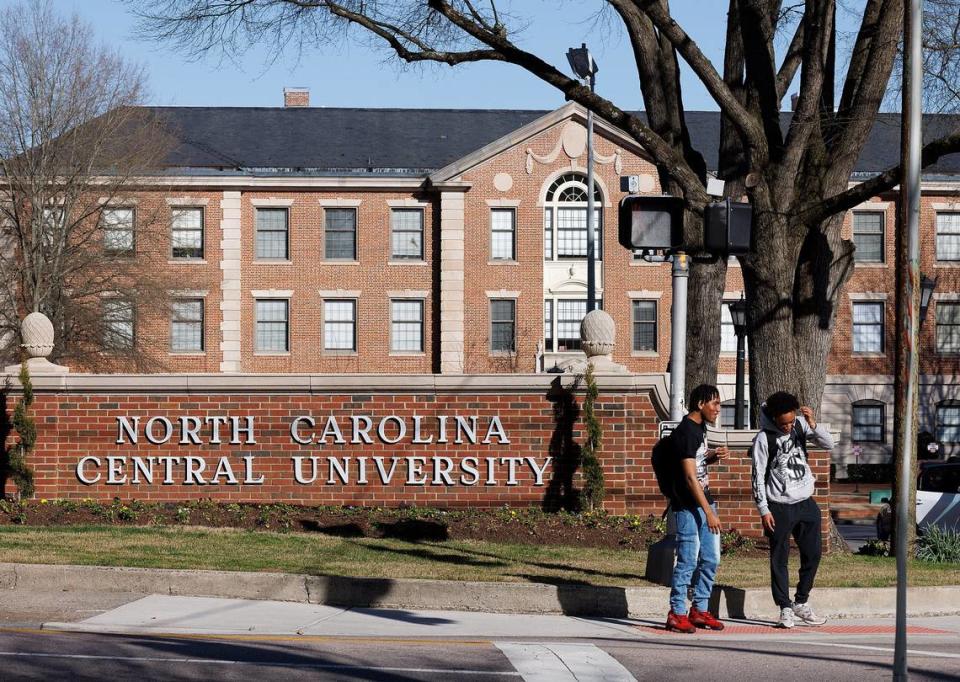Dean’s List: What is the UNC System requesting in this year’s NC budget?
With budget negotiations between the state House and Senate at an impasse at this point in the short legislative session, the House this week will vote on its own spending proposal.
The General Assembly passed a two-year, $30 billion budget last session. In even-numbered years, the legislature typically passes an adjustment bill — a task that seemingly has the two chambers at odds over state employee and teacher raises, among other priorities, this year.
The UNC System, made up of 17 campuses around the state, in the upcoming fiscal year is expected to receive about one-third of its budgeted revenues from state appropriations. By law, the university system is required to “develop, prepare, and present to the Governor and the North Carolina General Assembly a single, unified recommended budget” for all campuses. And, like other entities and agencies funded with state dollars, the university system has several requests and priorities it would like to see funded in this year’s budget.
The UNC System Board of Governors approved the system’s budget priorities, which included input and requests from campuses, at its April meeting.
So, what is the system requesting in this year’s budget?
Welcome to Dean’s List, a roundup of higher education news in the Triangle and across North Carolina from The News & Observer and myself, Korie Dean.
This week’s edition includes more information about the UNC System’s budget requests, a new cybersecurity program at Appalachian State University and more.
UNC System budget requests
The UNC System outlines two categories for its budget requests: operating budget priorities and capital priorities.
For operating budget priorities, the system is requesting:
▪ More than $46 million in recurring funds for performance-weighted enrollment funding, plus almost $5 million in one-time money to mitigate funding losses at two schools, UNC Pembroke and Winston-Salem State University, that have experienced multi-year enrollment declines.
The Board of Governors in 2022 revised the system’s funding model for campuses — tying funds to schools’ performance instead of their ability to grow enrollment — but campuses still receive state funds based on students’ credit hours.
Board of Governors meeting materials stated in April that a “slight decrease in total resident student credit hours” in 2023 was “offset by students taking more credit hours in disciplines with higher funding rates such as STEM fields.”
▪ More than $2.7 million in recurring funds and about $470,000 in one-time money for UNC Wilmington’s Randall Library and buildings on the Morganton campus of the North Carolina School of Science and Mathematics.
“These funds will support the maintenance and operations of new and expanded facilities,” according to meeting materials.
▪ $8.5 million in recurring funds, sourced from the state’s Escheat Fund, for completion assistance programs at Elizabeth City State University, Fayetteville State University, NC A&T State University, NC Central University, UNC Asheville, UNC Greensboro, UNC Pembroke and Winston-Salem State University.
These funds are awarded in amounts up to $5,000 to students “who need financial assistance to remain enrolled and earn credits necessary to be on track for on-time graduation,” aiding in an effort to keep them from dropping out “because of financial shortfalls.”
According to meeting materials, students who drop out of the UNC System often cite finances as their top reason for not reenrolling in the system.

▪ $15 million in recurring funds for a labor market adjustment fund, intended to make targeted salary adjustments “to address recruitment and retention issues for hard-to-fill positions.”
For capital priorities, the system is requesting:
▪ More than $48 million in one-time money from the State Capital and Infrastructure Fund, or SCIF, to cover the cost of inflation on major renovation projects at East Carolina University, Fayetteville State University, UNC Charlotte, UNC Wilmington, Western Carolina University, Winston-Salem State University and the NC School of Science and Math.
▪ $17 million in one-time funds for campus safety infrastructure at Elizabeth City State, Fayetteville State, UNC Asheville, UNC Pembroke, UNC-Chapel Hill and the NC School of Science and Math.
Among others, the projects that would be funded with the appropriations include a campus-wide lockdown system at ECSU ($200,000), a card-access system for residence halls at Fayetteville State ($3.2 million) and an “enterprise security camera system” at UNC-Chapel Hill ($4 million).
▪ More than $21.5 million for “critical utility infrastructure needs” at the system’s historically Black universities.
The proposed projects that would be funded with the appropriations include a boiler replacement at NC A&T, repairs of stormwater drainage systems at NC Central and an emergency generator at Elizabeth City State, among others.

The system is also requesting two special provisions be written into law as part of the budget:
One would allow up to 5% of capital project budgets to be used for a limited time on “in-house project managers,” which the system identifies as “a cost-effective alternative to relying on consultants.”
Another provision would allow one-time money the system received for 2024 to be deployed through the 2025 fiscal year. The system says that delays in the previous budget, which came about three months late, “have significantly reduced the time available to deploy” the funds.
The House is expected to consider its budget proposal in committees Tuesday, with votes expected Wednesday and Thursday.
New cybersecurity program at App State
Students at Appalachian State University will be able to major in cybersecurity beginning this fall.
The degree will be offered through the university’s Walker College of Business and will be available at both of the university’s campuses, in Boone and in Hickory, which opened last year. It will be the first undergraduate degree program in cybersecurity available through the UNC System in western North Carolina.
Cybersecurity topics in the program will focus on forensics, incident response and detection, audit and cybersecurity analytics, programming, networking and database management, among several other topics. Students will also take business courses, with focuses on accounting, business law, computer information systems, economics, finance and more.
The Board of Governors approved App State’s request to implement the program at its May meeting.
“At App State, we are dedicated to equipping students with the skills to thrive in high-impact fields,” interim Chancellor Heather Norris said in a news release. “This program addresses the urgent need for professionals trained to secure information and infrastructure against ever-evolving threats and vulnerabilities.”

Higher ed news I’m reading
As NC State University plans to break ground this summer on a multi-year, $140 million renovation to Dabney Hall, building occupants are raising concerns about the possibility of being exposed to toxic materials, such as PCBs, Technician reports.
The University of Kentucky Board of Trustees voted to dissolve the university Senate, moving the group into an advisory capacity and giving the university president and other administrators policy-setting power, The Lexington-Herald Leader reports.
Sign up for The N&O’s higher ed newsletter
That’s all for this roundup of North Carolina higher education news. I hope you’ll stay tuned for more.
Like what you read here and want to be on our mailing list when the Dean’s List newsletter launches? Have suggestions for what kind of content you’d like to see featured in the future? Let us know by filling out the form below:

